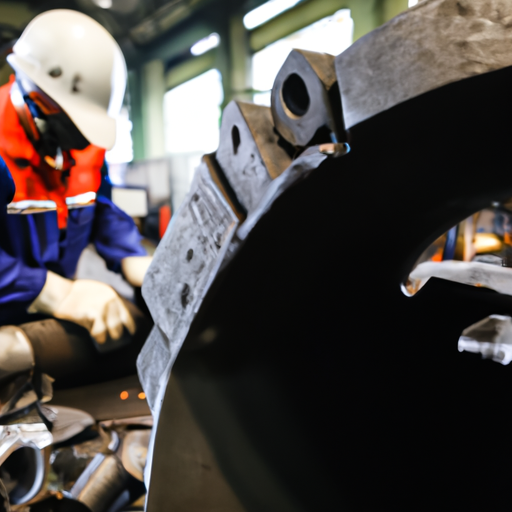Programmable timers are timing devices widely used in various fields, featuring precise timing functions and flexible programming capabilities to perform timing, counting, delay operations, etc. according to user needs. In modern industrial production, programmable timers are widely used in automation control systems, production lines, equipment monitoring, and other fields, playing an important role.

1. Design and R&D: The design and R&D of programmable timers are the first step in the entire production process, determining the product's functionality, performance, and appearance. Designers need to determine the product's functional modules, hardware structure, and software algorithms based on market demand and technological trends, and carry out circuit design, PCB layout, shell design, etc. At the same time, the R&D team needs to continuously conduct technical research and innovation to improve the product's performance and competitiveness.
2. Raw material procurement: The production of programmable timers requires a large number of raw materials, including electronic components, shell materials, display screens, buttons, etc. Manufacturers need to establish stable cooperative relationships with suppliers to ensure the quality and stability of raw materials. At the same time, manufacturers also need to strictly inspect and test raw materials to ensure they meet the product's requirements.
3. Production manufacturing: Production manufacturing is the core link in the production process of programmable timers, including circuit board assembly, program burning, shell injection molding, assembly testing, etc. Manufacturers need to establish a complete production line and quality management system to ensure product quality and delivery cycle. At the same time, manufacturers also need to continuously optimize the production process to improve production efficiency and reduce costs.
4. Quality control: Quality control is an important link in the production process of programmable timers. Manufacturers need to establish a sound quality management system to strictly inspect and test raw materials, production processes, and finished products. At the same time, manufacturers also need to conduct product life testing, environmental adaptability testing, etc., to ensure product stability and reliability.
5. Market promotion: Market promotion is the final link in the production process of programmable timers. Manufacturers need to promote products to the market through advertising, exhibition participation, channel expansion, etc. At the same time, manufacturers also need to establish good cooperation with customers, understand market demand and user feedback, continuously improve products and services, enhance market competitiveness.
In summary, the mainstream production process of programmable timers is a complex and systematic process that requires collaboration in design, R&D, procurement, production, quality control, and market promotion. Only by continuously improving technical levels, optimizing production processes, strengthening quality management, can high-quality, high-performance programmable timer products be produced to meet market demand, win customer trust.
Programmable timers are timing devices widely used in various fields, featuring precise timing functions and flexible programming capabilities to perform timing, counting, delay operations, etc. according to user needs. In modern industrial production, programmable timers are widely used in automation control systems, production lines, equipment monitoring, and other fields, playing an important role.

1. Design and R&D: The design and R&D of programmable timers are the first step in the entire production process, determining the product's functionality, performance, and appearance. Designers need to determine the product's functional modules, hardware structure, and software algorithms based on market demand and technological trends, and carry out circuit design, PCB layout, shell design, etc. At the same time, the R&D team needs to continuously conduct technical research and innovation to improve the product's performance and competitiveness.
2. Raw material procurement: The production of programmable timers requires a large number of raw materials, including electronic components, shell materials, display screens, buttons, etc. Manufacturers need to establish stable cooperative relationships with suppliers to ensure the quality and stability of raw materials. At the same time, manufacturers also need to strictly inspect and test raw materials to ensure they meet the product's requirements.
3. Production manufacturing: Production manufacturing is the core link in the production process of programmable timers, including circuit board assembly, program burning, shell injection molding, assembly testing, etc. Manufacturers need to establish a complete production line and quality management system to ensure product quality and delivery cycle. At the same time, manufacturers also need to continuously optimize the production process to improve production efficiency and reduce costs.
4. Quality control: Quality control is an important link in the production process of programmable timers. Manufacturers need to establish a sound quality management system to strictly inspect and test raw materials, production processes, and finished products. At the same time, manufacturers also need to conduct product life testing, environmental adaptability testing, etc., to ensure product stability and reliability.
5. Market promotion: Market promotion is the final link in the production process of programmable timers. Manufacturers need to promote products to the market through advertising, exhibition participation, channel expansion, etc. At the same time, manufacturers also need to establish good cooperation with customers, understand market demand and user feedback, continuously improve products and services, enhance market competitiveness.
In summary, the mainstream production process of programmable timers is a complex and systematic process that requires collaboration in design, R&D, procurement, production, quality control, and market promotion. Only by continuously improving technical levels, optimizing production processes, strengthening quality management, can high-quality, high-performance programmable timer products be produced to meet market demand, win customer trust.
